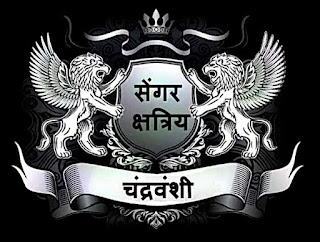हिन्दुत्व : सर्वे भवन्तु सुखिनः
नरेंद्र मोदी का न्यूयॉर्क में संस्कृत में मंत्रोच्चार
Last Updated: रविवार, 28 सितम्बर 2014
-शोभना जैन
न्यूयॉर्क। प्रधानमंत्री नरेन्द्र मोदी ने आज अपने अमेरिकी दौरे के दूसरे दिन न्यूयॉर्क के ऐतिहासिक सेंट्रल पार्क में युवाओं की मौजूदगी में ओम शान्ति, ओम शान्ति का मंत्रोच्चार किया और एक संस्कृत श्लोक के जरिए उन्हें सबका मंगल, सबके कल्याण की कामना की भारतीय संस्कृति समझाई और साथ ही अंग्रेजी में उनकी खैरियत पूछते हुए कहा- 'हाऊ आर यू डूइंग न्यूयॉर्क नमस्ते'। प्रधानमंत्री आज यहां पॉप सिंगरों की मौजूदगी में ग्लोबल सिटीजन फेस्टिवल को संबोधित कर रहे थे। सफेद रंग का कुर्ता-पायजामा और नीले रंग की जैकेट पहने प्रधानमंत्री ने उपनिषद के मंत्र का मंत्रोच्चार किया
'ॐ सर्वे भवन्तु सुखिनः
सर्वे सन्तु निरामयाः।
सर्वे भद्राणि पश्यन्तु
मा कश्चिद्दुःखभाग्भवेत्।
ॐ शान्तिः शान्तिः शान्तिः॥
--------------------------------
सर्वे भवन्तु सुखिनः सर्वे सन्तु निरामया,
सर्वे भद्राणि पश्यन्तु मा कश्चिद् दुख भागभवेत। ऊँ शांतिः शांतिः शांतिः
अर्थ - "सभी सुखी होवें, सभी रोगमुक्त रहें, सभी मङ्गलमय घटनाओं के साक्षी बनें और किसी को भी दुःख का भागी न बनना पड़े।"
-------------------------
JANUARY 11, 2017
Sarve Bhavantu Sukhinah
YOGA ARTICLES GENERAL
by Gaurav Rastogi
Sanskrit, Transliteration, Translation
ॐ सर्वे भवन्तु सुखिनः सर्वे सन्तु निरामयाः ।
सर्वे भद्राणि पश्यन्तु मा कश्चिद्दुःखभाग्भवेत् ।
ॐ शान्तिः शान्तिः शान्तिः ॥
Om Sarve Bhavantu Sukhinah, Sarve Santu Nir-Aamayaah |
Sarve Bhadraanni Pashyantu, Maa Kashcid-Duhkha-Bhaag-Bhavet |
Om Shaantih Shaantih Shaantih ||
may every one be happy, may every one be free from all diseases
may every one see goodness and auspiciousness in every thing, may none be unhappy or distressed
Om peace, peace, peace!
Observations
We are stardust. Recycled elements from new and old stars, some matter as old as the universe itself, and some from stars that lived and died billions of years ago. We are made of this universe, and each of us is a story 13.82 Billion years in the making.
We feel a separation from the world. When we look out from our eyes, we look at the world being "outside" us in some way. We're not sure where this separation begins, but we sure "feel" removed from the world. Does a bag of skin separate us from the world? Is it our thoughts, our name and story, or our spirit whatever it may be? We're not sure what separates us from the world, but we just know that we are separate, and this knowing makes us feel that we need to look out for ourselves. To protect and shield ourselves. And so we suffer.
This English translation above doesn't do justice. We're not praying just for everyone. We are praying for "all", every-thing-person-animal-atom-energy-quanta that exists. We are praying for the the welfare of the entire Universe, with no exception for "us" or another.
When we pray for all, we pray for ourselves too, and we begin to heal and become well. This prayer is really a reminder of our universal self. To know that we are no different from the Universe, even though our way of seeing the world doesn't usually feel that way. We pray so we may be joined in with the whole again.
Our heart is a mirror; we humans come preloaded with empathy. You would have noticed that when you see someone crying, you feel sadness yourself. When you hear the laugh-track on the TV comedy, you want to laugh along too. When you see happy little children, you feel the same happiness. Our hearts have evolved with this empathy, reflecting emotions from the world we see around.
pashyantu, to see. The mirror reflects everything. For our heart to experience true joy, there must be joy in the world all around. In a selfish way, we are wishing that there's happiness, health, auspicious signs and good fortune all around, because that's what we want in our hearts.
Sukha is more than happiness. Su-kha literally means good space. When a wheel is moving around it's center, the cart moves smoothly and quickly. When the wheel is not moving around it's center (it's eccentric), the cart moves in a jerky manner, causing vibration and damage. That's why we take our cars to the wheel alignment shops. To restore good space in the center.
Su-kha means that the wheel is in full alignment. When we have alignment, things move smoothly just as it's naturally supposed to. That makes us happy, but it's more than that. We feel a sense of order, oneness, and comfort in knowing that all is well with the world.
When our outside world is out of alignment with our nature, we live lives out of balance. This is what we call "stress". We are unhappy, of course, but we are also unhealthy, unstable and unable to meet our full potential. This is "dukha", and we don't want any of it. We pray for this return to alignment- positively as a prayer for "sukha" in the first line, and as the negation of "dukha" in the last line.
We close with the three Shanti (peace). We pray for peace in the Universe, peace in our hearts, and peace between.
Om Shanti Shanti Shanti
ॐ शान्तिः शान्तिः शान्तिः ॥
_________________
Be Happy. Be Healthy. See the good. - सर्वे भवन्तु सुखिनः
- shashikant joshi । शशिकांत जोशीसर्वे भवन्तु सुखिनः सर्वे सन्तु निरामयाः ।
सर्वे भद्राणि पश्यन्तु मा कश्चिद्दुःखभाग्भवेत् ॥
sarvé bhavantu sukhinaḥ , sarvé santu nirāmayāḥ |
sarvé bhadrāṇi pashyantu , mā kashchid_duḥkha-bhāg-bhavét || [IAST]
sarve bhavantu sukhinaH , sarve santu nirAmayAH |
sarve bhadrANi pashyantu , mA kashchid_duHkha-bhAg-bhavet || [ITRANS]
All should/must be happy, be healthy, see good;
may no one have a share in sorrow.
The mantra, or shloka has 4 parts or phrases. The first three have the same format - "All a-must/should-verb an-adjective"
Notice the bhavantu, santu, pashyantu? They are all 'must/should' form of the verb.
'sarve' means all. So this is about all. 'bhavantu sukhinaH' means all should/must be happy. 'sukhi' means comfortable, without sorrow, happy. And 'bhavantu means 'they should/must be [happy]'.
Similarly for santu (must be) and pashyantu (must see).
With all these three, the idea is you should.must be happy, itis something under your control, you have to act on these.
But the last one 'bhavet' is a wishful dictate - 'May you'. This is what should happen (ideal, imperative) and may this happen.
Why so? Read on.
Be Happy.
You choose to be happy. It is a reaction to a situation, but you can make it a state of mind as well. You can be sad, depressed, angry, jealous or just be yourself - happy. The basic states of the divine and all of us are -' sat-chit-Ananda', that is, to be, to be aware and to be happy/blissful. That is our normal state. Children are usually happy, sometimes even for no reason. All they need is food and sleep and they are happy. Unless they meet a grumpy grown up! But if you are not happy now, just remember your childhood. Most of us have happy memories of our childhood.
No one else can make you happy. Even when 'bad' events happen, it is our attachment, our ignorance of the big play of Time, that we choose to be not happy. Don't say "So and so made me unhappy, or angry." Say, "I chose to be unhappy or angry in reaction to this or that situation." If you watch the nature documentaries about the animal kingdom, you find that the same basic tragedies happen to the animals as to us. We have compounded them by adding abstract pains and worries as well. Birth, death, meeting and separating keeps happening. That is what Krishna (kRiShNa, कृष्ण) says in Gita (gItA, गीता) - "Ups and downs come and go, bear them O Arjun."
Be Healthy.
Our natural state is of health. You may point out birth defects, and yes that is an exception. But rarely you find a life form unhealthy, unless they have just fought with an opponent. Bulls gore each other during the mating season, and that is the only injuries to an animal not yet hunted. Otherwise, they are all healthy.
We on the other hand, have made bad choices in our life style and started to fall ill. Too much sugar in our diet, which was never in abundance in nature. Too much food as such for the 'haves', and no food for the 'have-nots', causing illness in both groups. The obesity epidemic in US is just one example of what we can do to ourselves by bad choices.
The Sanskrit word for healthy is 'svastha' स्वस्थ - sva-stha - self-positioned, that is, one who is centered in Self, the natural state. That is everyone who survived the first few years of life is destined to be healthy. Even in modern medicine, when we think the doctor is helping with the medicine, the medicine mostly only controls the symptoms to ease our discomfort and helps the body heal itself. The body knows. It is us who don't listen to the signals due to our weakness of determination and make bad choices.
See the good.
As the saying goes - It is all in the attitude. If you want to see the bad, there is plenty. If you want to see the good, there is plenty too. It does not mean to turn a blind eye on evil, or where you can really improve. But don't just focus on the negative. See the positive also.
If you see only the negative in others and make their life miserable by constant nagging - what do you achieve with that? It doesn't help the person improve. And if your goal is not to help improve the other person then why even bother. And, sometimes things are beyond control. In which case you have to let go of the negative. A handicap person will not become able if you don't see beyond the handicap and focus on the positives, on what can-be, rather on what is-not.
All the above are under your control, they are within your will power. You choose the above.
Hence the dictate, the order is - "You must [choose to] be happy, you must [choose to] be healthy, you must [choose to] see the good."
May no one have sorrow.
There are three ways that 'duHkha' can come. The words are not exactly translatable without losing some other shades of the meaning. 'tApa' (ताप) or heat (tApa-mAna = temperature) also means that which scorches you, that which you endure. It also means sorrow, which scorches the heart. There are three sources of this sorrow/calamity/bad-state - self-inflicted (AdhyAtmika, आध्यात्मिक), inflicted by others (Adhi-bhautika, आधि-भौतिक) and caused by (super-)natural forces (Adhi-daivika, आधि-दैविक).
The "shAntiH, shAntiH, shAntiH" (शान्तिः शान्तिः शान्तिः ) at the end of a shAntiH pATha is not for 'three is a charm' but for these three types of sorrows to be calmed.
Since there is the 'other' factor here, there is the blessing that may no one have a share in sorrow. duHkha-bhAg is one who has a share in sorrow. So the blessing/wish goes - "May no one be a one-who-gets-a-share-in-sorrow."
So, unlike popularly understood, it is not 'May you be happy, healthy...'. No, you are hereby ordered (you should/must) to be happy, healthy ...
You have no choice now!
You are 'it' - the happy, healthy, nice person! You have been tagged!
Here is a very old mantra that is not only hip for today's times, it is actually the stark reality facing us. Not many of us realize the truth of this dictate-cum-blessing from the ancient seers.
Happiness, health and attitude are in our own hands.
(c) shashikant joshi । शशिकांत जोशी । ॐ सर्वे भवन्तु सुखिनः ।









टिप्पणियाँ
एक टिप्पणी भेजें